Parisian Icon Les Bains Heads to The Mediterranean With Eco-conscious Hotel
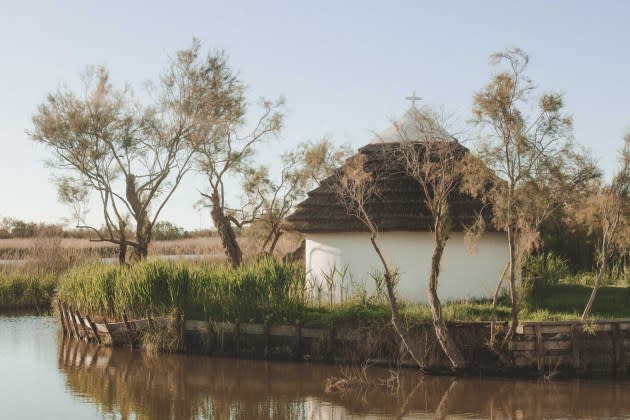
Picture this: As you open the window of your room at Les Bains Gardians, pink flamingos are taking a breather in a nearby pond as cranes fly by.
Walking to breakfast, you pass white horses cantering freely. Behind them is the majestic marshland of the Camargue, the coastal region of southern France tucked between the Mediterranean Sea and the delta of the Rhône River.
More from WWD
With One Yarn, Alaïa's Pieter Mulier Unleashed Fashion Fireworks Galore
WWD Weekend's Ultimate Guide to Gyms, From Los Angeles to Paris to Beijing
Are Luxury Fitness and Sports Recovery Destinations Replacing Spas?
“I never get tired of it,” says owner Jean-Pierre Marois. “It’s one of the last frontiers in France, the wildest place in the country where you feel the weight of untamed nature.”
Communing with nature is at the heart of Les Bains Gardians, the second hospitality project of Marois, a French film producer turned hotelier who recast Paris’ legendary nightspot Les Bains into a five-star hotel in 2015.
There’s no doubt Les Bains Gardians is luxurious: spread across the 10-acre property in the Camargue Regional Nature Park are 67 rooms, including 48 gardian cottages, seven conference rooms, plenty of reception spaces as well as a spa, two pools, tennis courts, 10,000 square feet of private arenas — and 25 resident horses.
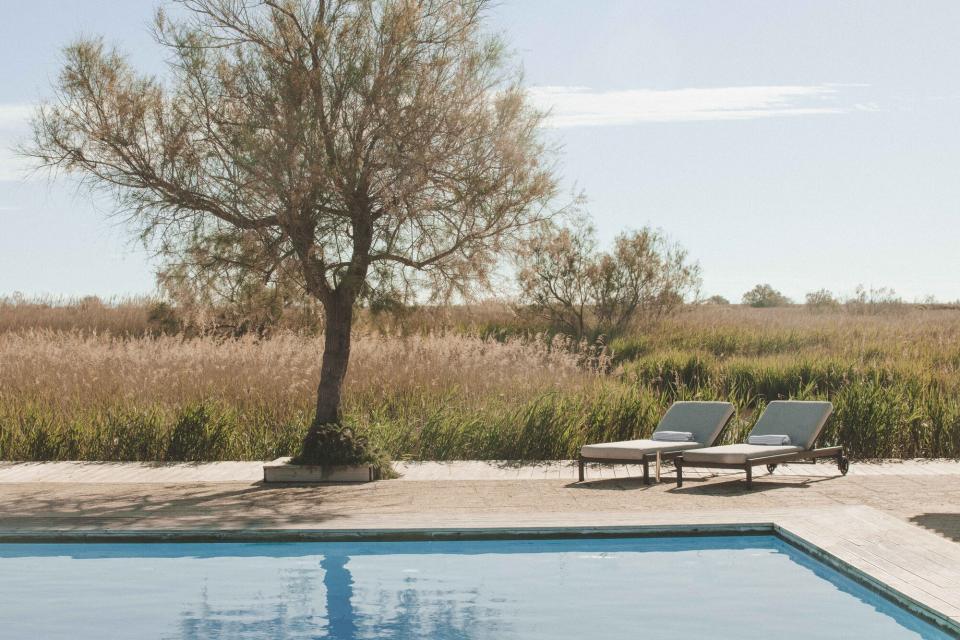
In the works are in-house amenities, developed independently and featuring the hotel’s signature Le Phénix scent, which is part of its Les Bains Guerbois fragrance line. Work is already underway to extend the spa to 3,500 square feet.
Beyond opening another luxury hotel, what the Frenchman wants to do here is push the envelope in terms of environmental and social sustainability.
“I really do believe that contemporary luxury is about virtuous impact and conscious travel and hospitality,” he says. Take the rooms earmarked for seasonal staff, overhauled to the same standards as paying guests. As an additional challenge, the owner is also keen to earn the Clef Verte label, France’s first certification for sustainable tourism.
All this came within a horsehair of never coming to fruition.
When the property came on the market around five years ago, Marois fell in love at first visit. Although he hit off with the former owners of the property, they’d just inked a sale with someone else. Then the pandemic hit, that deal fell through and Marois got his dream place.
That turned out to be a mixed blessing: This was his dream place but the facilities were in dire disrepair.
Never mind luxury standards. The initial hurdle was getting back to the bare minimum. “One of the first features of luxury today is to have the lowest impact in terms of environment and here we had used waters going straight into the ponds,” remembers Marois. “It was really nasty.”
More than a third of the project’s sizable budget went into overhauling the sanitation system, and this mandatory step took over a year.
Also playing into the sustainable ethos of the place are the traditional lodgings of the region’s gardians, or herdsmen.
These structures with thatched reed roofs typical of Camargue’s traditional architecture have natural temperature control and ventilation thanks to their materials and positioning.
Each cottage faces a body of water and is positioned to catch the sun thanks to its flat front wall. Back walls are rounded to withstand the region’s famously strong Mistral winds, while the white quicklime that coats the structures fends off the worst of the summer heat.
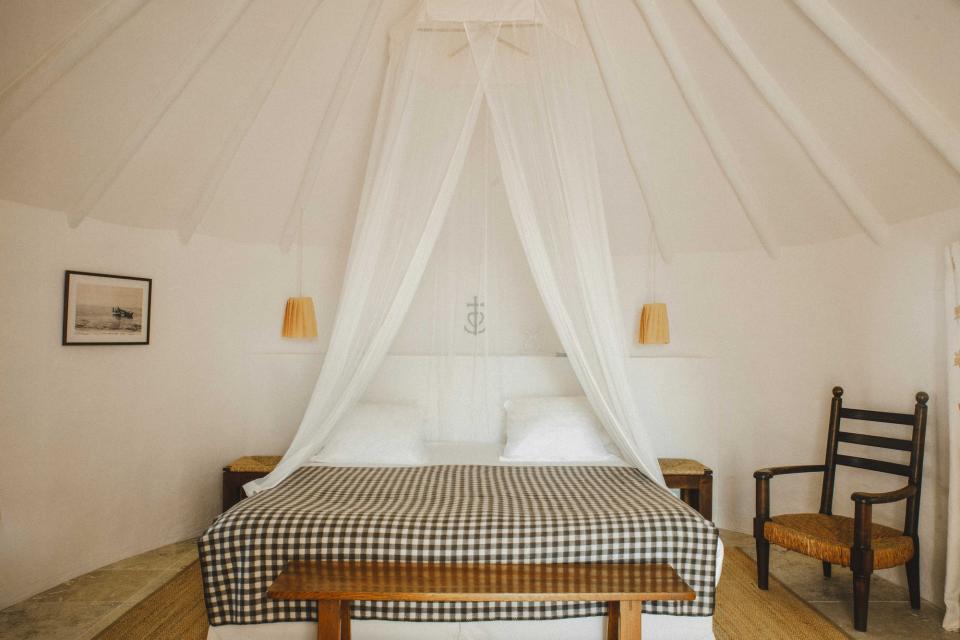
Giving them and the rest of the property the barefoot luxury vibe Marois intended was a task he entrusted to interior architecture duo Hauvette & Madani, whose sense of punchy simplicity matched what he envisioned.
The throughline the pair followed was returning the property to its 1960s original charm and build on it in the manner of a family home, with knick-knacks and furniture accumulated meaningfully over generations, says Samantha Hauvette.
“The [cottages] are not luxurious dwellings, so we considered what comfort could be with this rustic building as a starting point,” she says. Regional nods include textiles developed with Les Indiennes de Nîmes, a local textile brand specialized in gardian garments. A mosquito net — a necessity in this marshland — also made for a useful and handsome feature.
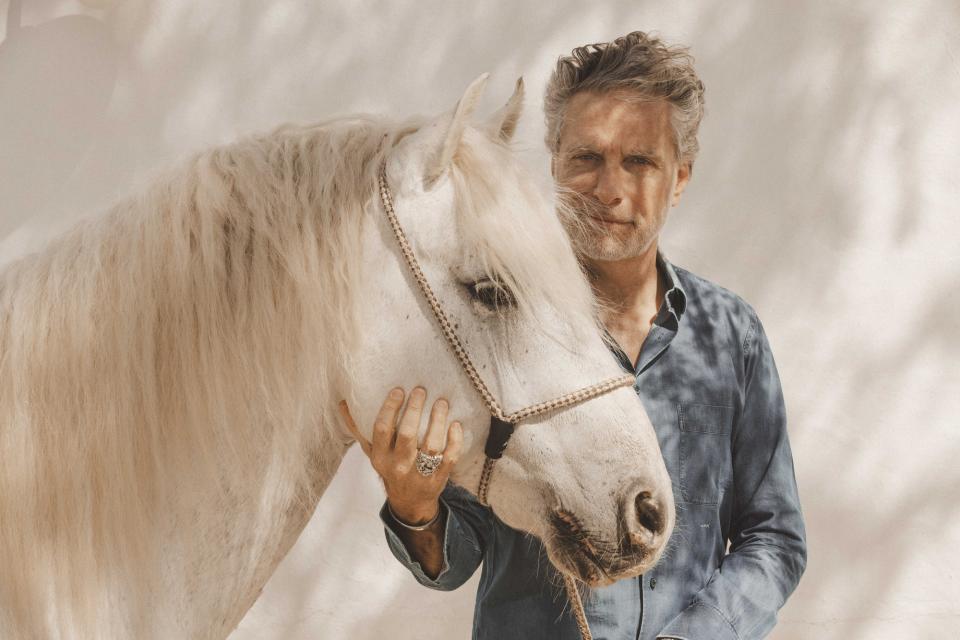
Furnishing the hotel became an opportunity to be more considerate. “We decided to go for a serious upcycling program and basically, 80 to 90 percent of the furniture is vintage,” Marois adds. There’s even 1950s sandstone mosaics featuring motifs of the sun found through another antiques dealer around the pools.
Arles-based antiques specialist Julie Barrau spent over a year amassing the eye-catching objects now dotted around the communal spaces and rooms.
Rewilding the property was key, which was overseen by art florist Luce Monier, who favored endogenous species such as tamarisks, feather reeds and water irises.
If the overall idea was to bring Les Bains’ mix of wellness and festive sense down south, Marois also knew that he couldn’t just transplant the concept wholesale.
Expecting the Parisian brand to head to Saint-Tropez, Ibiza or other glamorous party locales would be forgetting the brand’s roots.
“I find it much more interesting to open in Camargue because it fits much more with the bohemian vibe. [Founder] Auguste Guerbois ran with the Impressionist crowd when they were ‘just’ the École des Batignolles and meeting in his café,” he points out.
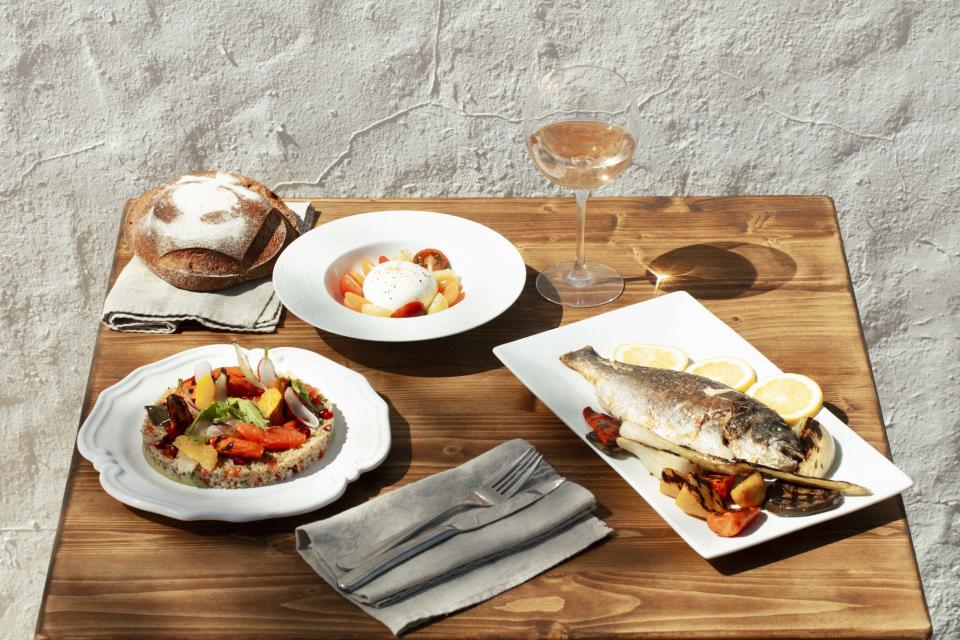
“Remember that we’re not an opulent, bling-bling type of place,” he continues. “When Les Bains Douches opened in the 1978 [as a nightclub], it was designed by a very young and unknown Philippe Starck on a shoestring budget. But it was groundbreaking and it was super cool.”
How he wants Les Bains Gardians to recapture that cool vibe is through conscious hedonism but also via the cultural program that’s built around the Camargue property.
Exit then the nightclub that takes pride of place in Paris. Here, it’s live music from local groups, with the occasional DJ residency. There will be exhibitions and artists will also be invited to create site-specific permanent works, selected by curator Jérôme Pauchant.
Food will play a decisive role at Les Bains Gardians, too. Come July, the Le Pont des Bannes restaurant will open, reviving a local institution under the direction of executive chef Bruno Grossi. Expect a blend of Camargue specialties and Mediterranean cuisine, heavily geared toward seasonal produce.
Ultimately, the only lasting impact Marois wants to have is creating unforgettable moments. “Having a good time under the stars with good cocktails and good music shouldn’t be an insult to the environment,” he says.
Best of WWD

